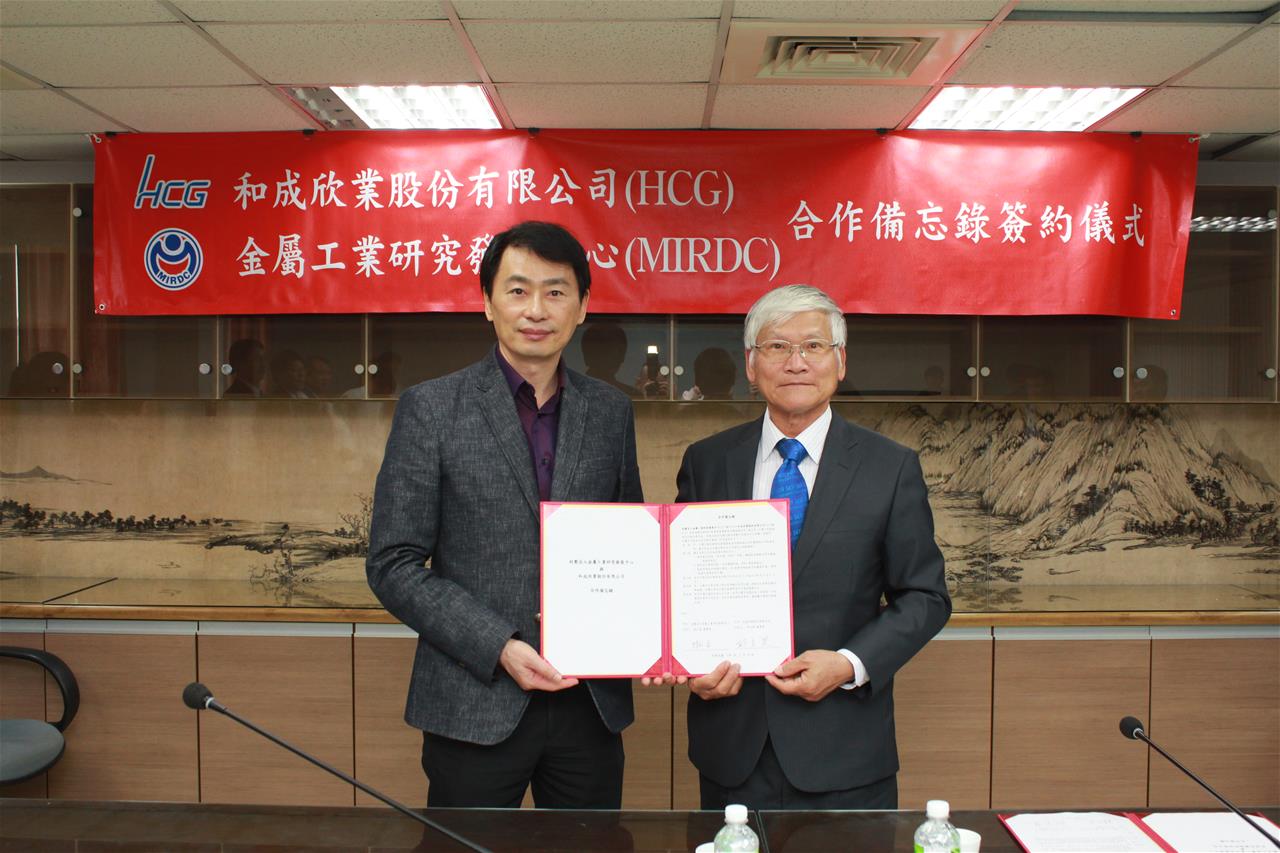
On January 11, 2019, the Metal Industries Research and Development Centre (MIRDC) officially signed an MOU with Hocheng Corporation (HCG), a well-known sanitary appliances provider in Taiwan, at the HCG headquarters in order to work together in facilitating diversified development of Taiwan’s kitchen and sanitary appliances industries. Dr. Ren-yi Lin, chairman of MIRDC and Li-chien Chiu, chairman of HCG represented both parties to sign the MOU on that day. The parties will form a market demand-oriented alliance that seeks to accelerate the development of sanitary products, improve their intelligent energy efficiency performance, and increase their global market share, so as to jointly facilitate the development of Taiwan’s sanitary appliancces industry.
There is an increasing demand among Taiwanese people for comfort in using sanitary appliances, and the trend shows a significant increase in the use of electric toilets recently. To accommodate such a demand and respond to the government’s consumer safety policy, the Home Application and Multi-Intelligence Laboratories (Homi) under MIRDC and the Taiwan Plumbing Research & Testing Laboratories (TPL) set up inspection and testing capabilities last year, establishing Taiwan’s first certified laboratory that is capable of electrical safety testing for electric toilets and qualified for testing.
Dr. Ren-yi Lin, chairman of MIRDC stated that high-end sanitary appliances will definitely become a future trend of the world with a focus on overcoming bottlenecks in developing high-end technologies, utilizing innovative materials, and ensuring a safe and comfortable user experience. With its advantage over intelligence development, the development of eco-friendly and safe materials, and quality testing and certification technologies, MIRDC will assist HCG in developing more innovative and safer high-end sanitary products, so as to increase the reputation of Taiwan’s luxury sanitary brands. Dr. Lin believed that the signing ceremony merely signified a beginning, and he expected both parties would achieve a win-win situation by entering into specific cooperative arrangements, engaging in more exchange activities, and providing support for each other.